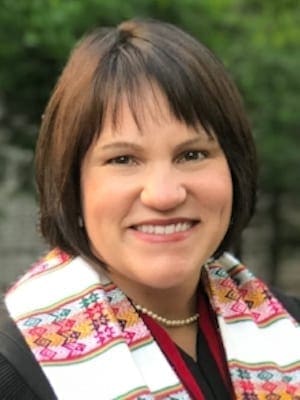I’ve had three parishioners within the past couple of months express their desire to have a small group where they could explore spirituality.
They don’t want Bible study, per se, and they don’t want a contemplative prayer group. We tried that a couple of years ago; it fizzled within a few months.
No, these ladies want something to help them go “deeper” – something more than what they glean through our traditional corporate worship services and Sunday school.
I’ve been in ministry long enough to know that I can’t respond to every comment or request, and I certainly don’t want to become the itch-scratcher-in-chief.
I make it my aim to listen and understand ideas and grievances. When one person comes to me with a complaint or request, I listen attentively and seek guidance with how to respond.
When a second person approaches me with the same comment, my ears perk up; I begin to sense more urgency. When a third person identifies the same need, I see the beginning of something.
This third request often signals a gathering momentum; it frequently heralds the movement of God’s Spirit. Three people – that’s a marker I look for in church life.
It’s a biblical principle, you know: “A cord of three strands is not quickly broken” (Ecclesiastes 4:12).
As a pastor, I loathe the idea of being the itch-scratcher-in-chief, but I surely want and need to be the bridge-builder-in-chief.
The three people I mentioned above – the three who shared a desire for a spirituality group – didn’t know each other.
One of the women has lived in the community for years without any church affiliation. The other two ladies are new arrivals to the neighborhood.
After hearing their three unrelated, but similar requests, my mission was clear. I needed to help them find one another. I needed to help them discover others with a similar interest and passion.
So I began making phone calls to a dozen or so ladies whom I know to be interested in spiritual reading.
I’m launching a book club focused on spirituality. My cord of three strands is in place; it will be easy enough to add to this motivated core group. The momentum is palpable. The Spirit of God just might be at work here.
This is a simple example of what I call “asset-based pastoral leadership.” In an asset-based approach to leadership, the focus is on what you have rather than what you lack.
In my pastoral work, it’s tempting to focus on the fact that my large church has a fledgling adult Sunday school.
I could work tirelessly to try to build a stronger adult Sunday school with a congregation of people who largely see no need for such a thing in their lives.
Imagine the energy I could pour into such an effort. Ministry doesn’t have to be that hard.
Asset-based pastoral leadership begins with developing a simple habit: With each parishioner, find out something he or she could teach and something he or she wants to learn.
In the example above, I had three ladies who wanted to learn more about spirituality in community.
The more difficult truth for them to realize, is that they have innumerable insights, life experiences and resources available that they can offer to other spiritual seekers. That’s the “untapped asset.”
My job as pastor (bridge-builder-in-chief) is to help them connect the dots, to offer form and structure for their shared need and collective wisdom.
So my role was to make phone calls to connect people. That’s what I do. I look for signs of the Spirit’s movement, and when I discover the momentum of three, I build a bridge.
I’ll take this asset-based approach any day over trying to fire up a Sunday school from ash and cold embers.
 Rhonda Abbott Blevins is an associate with Pinnacle Leadership Associates and is associate pastor at the Community Church at Tellico Village in Loudon, Tennessee. A version of this article first appeared on Pinnacle’s blog and is used with permission.
Rhonda Abbott Blevins is an associate with Pinnacle Leadership Associates and is associate pastor at the Community Church at Tellico Village in Loudon, Tennessee. A version of this article first appeared on Pinnacle’s blog and is used with permission.
Rhonda Abbott Blevins is an associate with Pinnacle Leadership Associates and serves as pastor of Chapel by the Sea, an interdenominational congregation in Clearwater Beach, Florida. She has a master of divinity from Southwestern Seminary in Fort Worth, Texas and a doctor of ministry from Mercer University’s McAfee School of Theology in Atlanta, Georgia. She lives with her husband Terry and sons Jake and Rhys.

